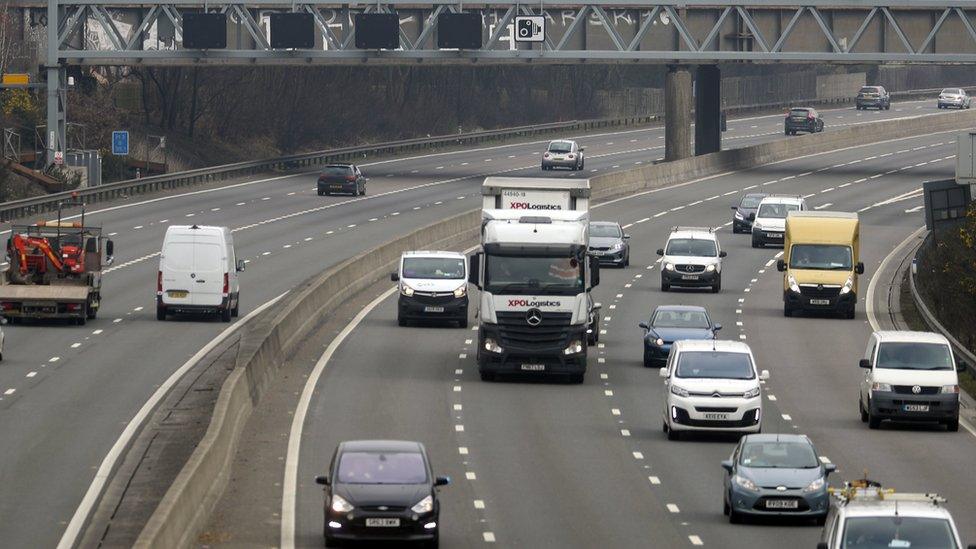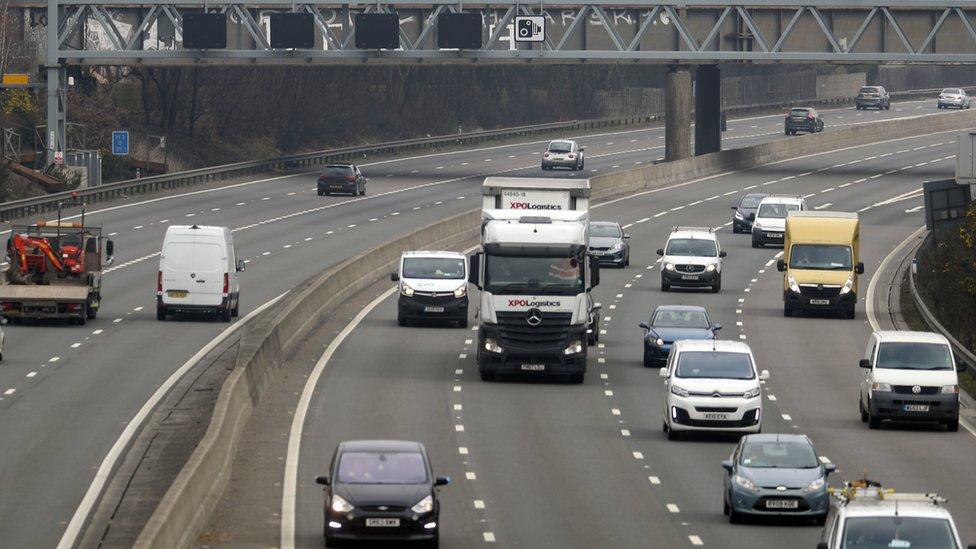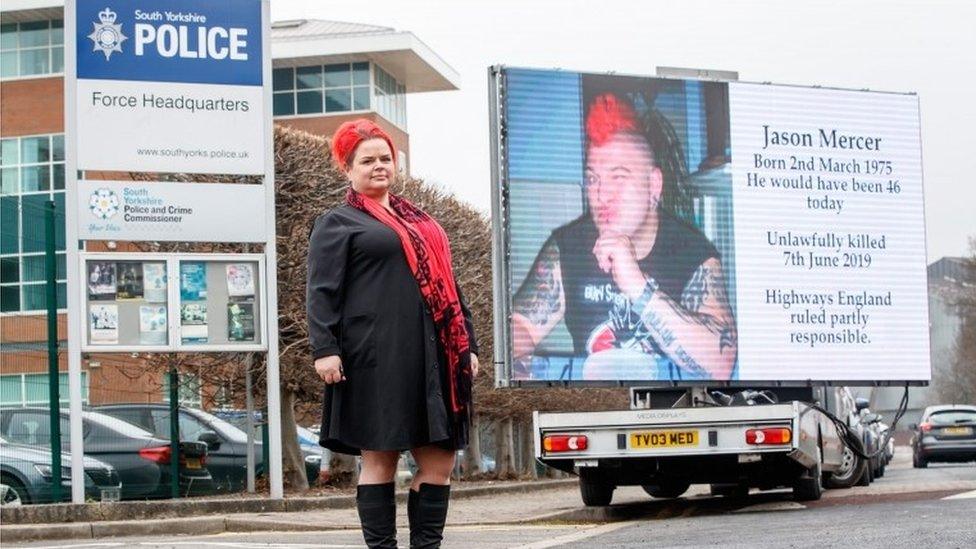Smart motorways: Lack of hard shoulder contributed to death - coroner
- Published

Nargis Begum died after the car she was travelling in with her husband Mohammed Bashir broke down on a smart motorway
The lack of a hard shoulder on a stretch of smart motorway in South Yorkshire contributed to the death of a grandmother, a coroner has ruled.
Mother-of-five Nargus Begum, 62, had got out of a Nissan Qashqai, which was being driven by her husband, after it broke down on the M1 in September 2018.
A Mercedes collided with the stationary car, causing it to plough into her.
Senior Coroner Nicola Mundy said the fact no drivers reported the stranded car had also contributed to her death.
Recording a conclusion of "road traffic collision", she told Doncaster Coroner's Court on Friday that the drivers of 153 vehicles had passed the vehicle before the crash without alerting National Highways.
Ms Mundy said: "The absence of a hard shoulder and the absence of any report to National Highways to notify them of the stationary vehicle so that lane closures could be put in place both contributed to Mrs Begum's death."

The hard shoulder had been removed from a stretch of smart motorway where Nargis Begum and her husband broke down
The four-day inquest heard how the Nissan had driven past an emergency refuge on September 9 2022, by about 250 yards and was stranded on the live inside lane and went undetected for 16 minutes and 21 seconds before the crash.
Ms Mundy expressed concern that many members of the public appear to wrongly believe that the dozens of cameras which are in place on smart motorways were being constantly monitored by control room staff.
She said one witness told the inquest he did not report the stationary Nissan because he believed it would be picked up by the cameras.
A number of National Highways directors and employees, including chief executive Nick Harris, told the coroner this was not practicable and the coroner asked whether more could be done to educate the public about this fact.
She said she would be writing to National Highways about this matter of public education.
Mr Harris told the inquest how technology which can detect more than 80% of stranded stationary vehicles within 20 seconds was being rolled out on all so-called All Lane Running motorways and this would be completed by the end of this month.

Follow BBC Yorkshire on Facebook, external, Twitter, external and Instagram, external. Send your story ideas to yorkslincs.news@bbc.co.uk, external.
Related topics
- Published7 September 2022

- Published2 March 2021

- Published22 December 2020

- Published6 September 2022
